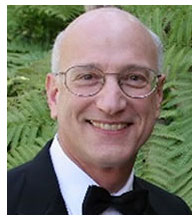 Professor Monty Krieger has life-long connections to Tulane - his mother (Mildred) and father (I. Jay) were graduates (Newcomb, Tulane Law). At Tulane (B.S. in Chemistry, summa cum laude with distinction, 1971) he did research with Professor Cusachs (quantum mechanics) and Professor Fritchie (crystallography) and received the Merck Award, the Perry Medal, and was elected to ΦΗΣ and ΦΒΚ. He received Danforth and Woodrow Wilson Fellowships for graduate studies in Chemistry at Caltech with Professor R. Stroud (Ph.D. ‘76) and Caltech’s McCoy Award for outstanding contributions to Chemistry. After postdoctoral training at Southwestern Medical Center with Professors M. Brown & J. Goldstein (‘77-‘81) he joined the faculty of Massachusetts Institute of Technology’s Biology Department where he is the Whitehead Professor and a Senior Associate Member of the Broad Institute. He has won awards for undergraduate & graduate teaching and for research, including election to the U.S. National Academy of Sciences (2009). He has been a visiting professor at the University of Crete and the Weizmann Institute and is an author of the widely used textbook Molecular Cell Biology. In 2009 he joined Tulane’s School of Science and Engineering Board of Advisors. He and wife Nancy have two sons, Jonathan and Joshua.
Professor Monty Krieger has life-long connections to Tulane - his mother (Mildred) and father (I. Jay) were graduates (Newcomb, Tulane Law). At Tulane (B.S. in Chemistry, summa cum laude with distinction, 1971) he did research with Professor Cusachs (quantum mechanics) and Professor Fritchie (crystallography) and received the Merck Award, the Perry Medal, and was elected to ΦΗΣ and ΦΒΚ. He received Danforth and Woodrow Wilson Fellowships for graduate studies in Chemistry at Caltech with Professor R. Stroud (Ph.D. ‘76) and Caltech’s McCoy Award for outstanding contributions to Chemistry. After postdoctoral training at Southwestern Medical Center with Professors M. Brown & J. Goldstein (‘77-‘81) he joined the faculty of Massachusetts Institute of Technology’s Biology Department where he is the Whitehead Professor and a Senior Associate Member of the Broad Institute. He has won awards for undergraduate & graduate teaching and for research, including election to the U.S. National Academy of Sciences (2009). He has been a visiting professor at the University of Crete and the Weizmann Institute and is an author of the widely used textbook Molecular Cell Biology. In 2009 he joined Tulane’s School of Science and Engineering Board of Advisors. He and wife Nancy have two sons, Jonathan and Joshua.
Krieger’s research at the Massachusetts Institute of Technology explores how cells ‘work’, how the body protects itself from foreign pathogens, and cholesterol metabolism and its role in clogging of the arteries (atherosclerosis), a major cause of heart attacks and strokes. Krieger studies receptors, proteins residing on the surfaces of cells that ‘recognize’ or bind to key molecules in the surrounding fluid. His analysis of LDL (‘bad’ cholesterol) receptors identified genes that influence the inner workings of cells, mutations in which cause human disease. He identified and characterized several ‘scavenger’ receptors, proposing and helping establish that such receptors can play a key role in immune defense. He also discovered and characterized the first HDL (‘good’ cholesterol) receptor and its novel mechanism of delivering cholesterol to cells. Krieger’s group showed this HDL receptor influences gastrointestinal, endocrine, reproductive and cardiovascular physiology, and protects against female infertility, certain blood disorders, and atherosclerosis. His work generated new methods for studying coronary heart disease and suggests that the HDL receptor is a potential target for pharmacologic prevention and treatment of cardiovascular disease.
